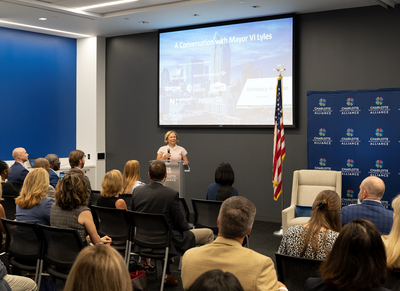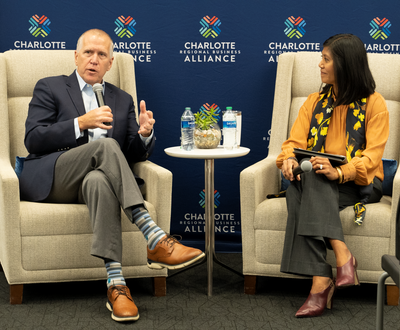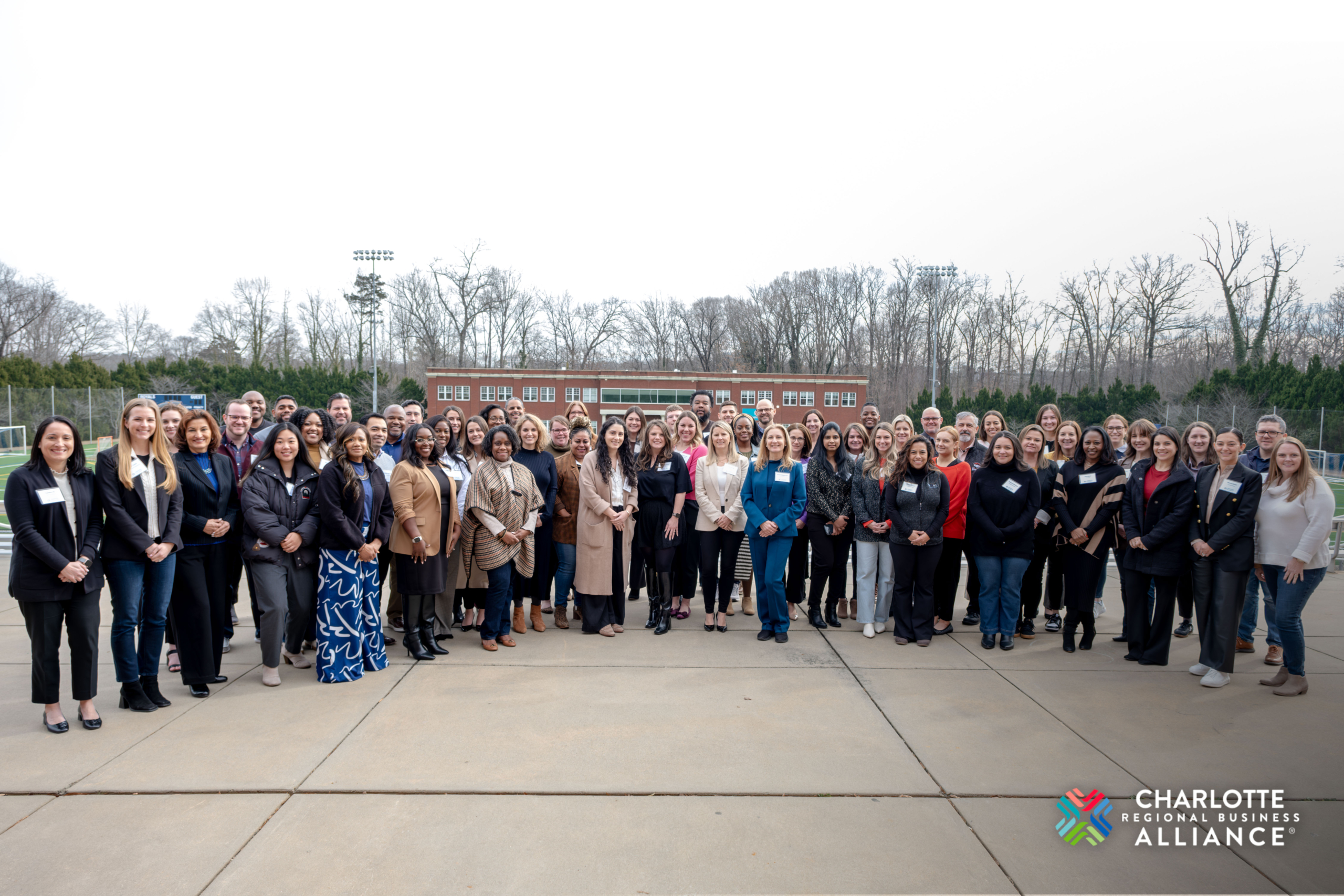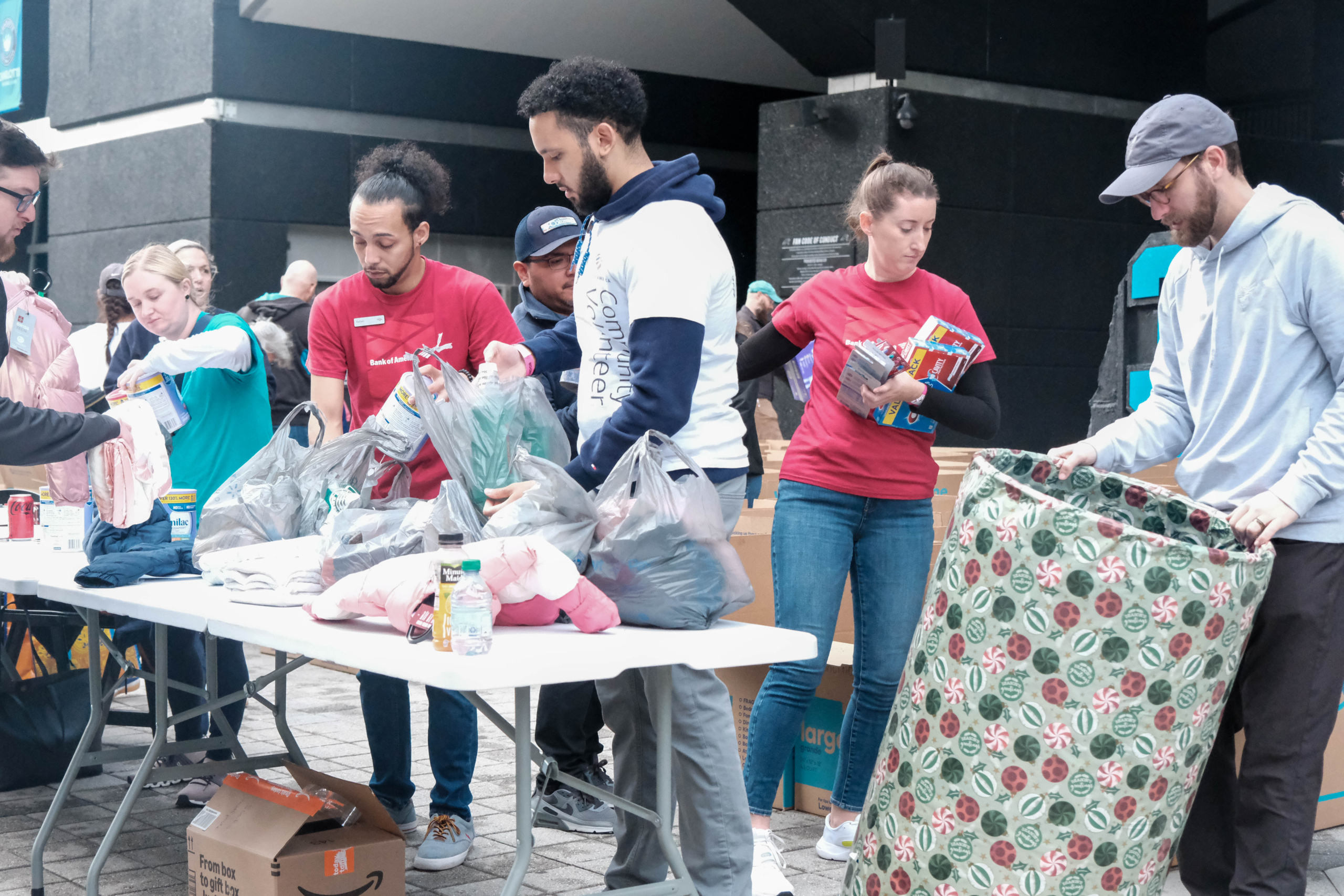The Charlotte Regional Business Alliance® Advocacy Team worked throughout 2022 to elevate its advocacy reach through research-based advocacy, timely programming, and communications aimed at keeping investors informed. This year, the team again managed the city of Charlotte bond campaign, delivering $226 million in investment in roads, neighborhoods, and affordable housing.
This year marked a new era for how the CLT Alliance team engages investors in advocacy work. The CLT Alliance secured the commitment from 35 government affairs professionals representing many of the Charlotte Region’s leading employers and organizations. The Advocacy Committee met several times throughout the year to discuss legislative issues and guided the reimagining of the CLT Alliance legislative agenda for 2023-2024.
We thank all the members of the Advocacy Committee, especially Betty Doster, chair emeritus, Tracy Montross, 2022 chair, and Kevin McLaughlin, 2022 vice chair and 2023 incoming chair.
Advocating for Business
The CLT Alliance advocates for businesses at the local, state, and federal levels. The advocacy team works to foster relationships with elected officials and share our vision for the region.
In the short session in North Carolina, the advocacy team worked on higher education funding, broadband funding and deployment, and transportation funding. These items were passed and important investments will be made throughout the region and the state. In transportation funding, a portion of sales tax revenue will now be transferred to the Highway Trust Fund to keep up with the increasing costs of maintaining the state’s transportation system.
The CLT Alliance led efforts with other chambers of commerce across North Carolina to express support for Medicaid expansion. Throughout 2022, the House and Senate continued to discuss the policy and the CLT Alliance will continue to advocate for its passage in 2023.
In South Carolina, the advocacy team supported additional funding for broadband as well as tax reform that will make the state more competitive nationally. The personal income tax rate was lowered from 7% to 6.5% and will be lowered to 6% over time when revenue triggers are met.
At the local level, the city of Charlotte approved its Unified Development Ordinance (UDO). The CLT Alliance hosted an Advocacy Committee meeting to discuss progress on the UDO and submitted comments to the city about certain parts of the ordinance.
At the federal level, the CLT Alliance joined a coalition to support placement of the Advanced Research Projects Agency for Health (ARPA-H) headquarters in North Carolina.
Also at the federal level, the CLT Alliance joined a coalition led by the U.S. Chamber of Commerce to support the CHIPS for America Act, which addresses the semiconductor shortage impacting businesses and consumers.
Convening Diverse Stakeholders
Throughout the year, the CLT Alliance brought investors and policymakers together for informative discussions about legislation and policies that will shape the region in the future. These meetings took place virtually as well as in Charlotte, Columbia, Raleigh, and Washington, D.C.
In the CLT Alliance Advocacy in Action series, investors had the opportunity to hear from leading policymakers and to ask questions important to their businesses.
Charlotte Mayor Vi Lyles discussed the city bond campaign and progress on her Mayor’s Racial Equity Initiative, in addition to the daily work she does on behalf of city residents.

State legislative leaders who spoke to CLT Alliance investors included North Carolina Sens. Vickie Sawyer and Dan Blue, Rep. Robert Revies, and South Carolina Sen. Wes Climer and Rep. Brandon Newton.
North Carolina Commerce Secretary Machelle Baker Sanders visited with CLT Alliance investors to recap 2021 and share her vision for her department in 2022. She discussed “First in Talent,” the strategic economic development plan for the state.
Sen. Thom Tillis, soon-to-be North Carolina’s senior senator, discussed his bipartisan work for the region and North Carolina. He also discussed his legislative priorities in the Senate including infrastructure and immigration reform.

Before both the primary and general elections, the CLT Alliance welcomed experts to discuss the political climate, predict outcomes, and answer questions from investors. Two political reporters, Colin Campbell and Maayan Schechter, offered their views before the primary election. Jim Blaine, Brad Crone, and Matt Moore, three political consultants, led the preview of the general election.
In addition to advocacy programming in Charlotte, the CLT Alliance hosted a D.C. Fly-in, bringing 30 investors to the nation’s capital. In Washington, our group heard from members of the congressional delegation from the Charlotte Region as well as administration and policy experts, who shared updates on implementation of the bipartisan infrastructure bill and progress on other legislative priorities including the CHIPS bill.
The CLT Alliance also hosted groups of investors for networking receptions in Columbia and Raleigh. Both governors and several legislators attended the receptions and visited with investors.
Back in Charlotte, the CLT Alliance hosted a candidates reception (co-hosted with the Hospitality & Tourism Alliance) and an elected officials reception (co-hosted with NASCAR). Both receptions were attended by dozens of candidates and elected officials, again offering investors the opportunity to visit with policymakers.
Communicating with Investors and Policymakers
The CLT Alliance continued to publish the Advocate newsletter twice a month. The newsletter served as a means of updating investors on key issues the advocacy team worked on as well as legislative, judicial and executive branch actions at the state and federal levels, and local activity throughout the region. Investors could hear from the advocacy team, policymakers, and other investors throughout the year by listening to the CLT Alliance Talks podcasts.
City of Charlotte Bond Campaign
The CLT Alliance again managed the city of Charlotte’s bond campaign, resulting in more than 70% approval from voters on all three bonds. Following approval from the Charlotte City Council, the $226 million bond package was placed on the November ballot. Of the $226 million total, $146.2 million will go toward roads and bridges, $50 million toward affordable housing, and $29.8 million for neighborhood improvements. This year marks the third successive election cycle where voters approved $50 million for affordable housing.
The CLT Alliance managed the campaign under the leadership of three co-chairs. Rai Glover with Truist, Kerr Putney with CPI Security, and Ali Summerville with Ally Financial served as the co-chairs of the campaign. Their leadership was instrumental in winning passage of the bond campaign.
A special thank you is due to all the supporters who made the campaign possible.




